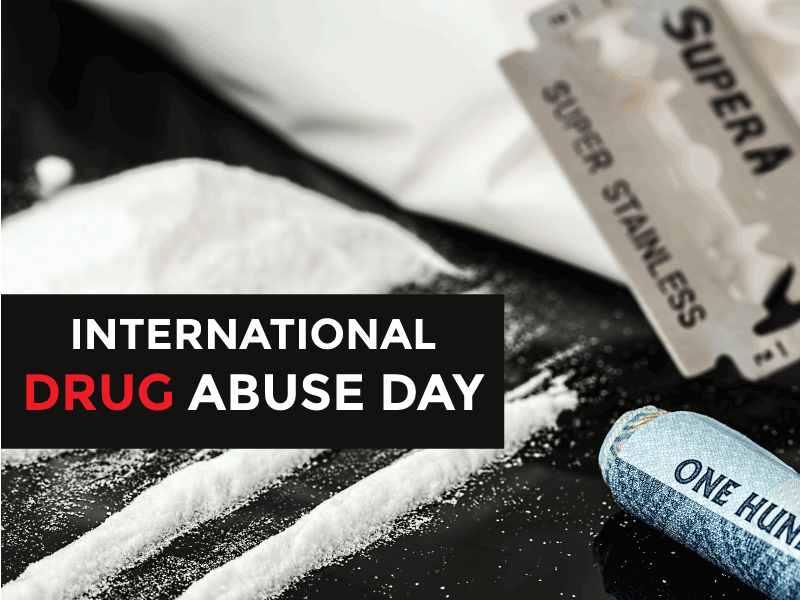Akhila Damodaran
Experts at Bangalore based NIMHANS (National Institute of Mental Health and Neuro-Sciences) say they witnessed a significant increase in the cases of alcohol withdrawal symptoms during the lockdown and now, they are seeing a significant rise in the cases of drug and alcohol addiction relapse post lockdown. They also say the lockdown has affected the services of support groups for addiction. The article ‘Complicated Alcohol Withdrawal—An Unintended Consequence of COVID-19 Lockdown’ published on Oxford Academic portal states that in Karnataka, 96 middle-aged men suffering from severe alcohol withdrawal symptom have sought help between March 22, 2020 and April 11, 2020 as compared to 79 cases between March 1, 2020 and March 21, 2020. On the International Day Against Drug Abuse and Illicit Trafficking (June 26), EducationWorld speaks to mental health professionals and an addiction survivor.
A member of the Bangalore edition of Narcotics Anonymous (NA), a group that offers a 12-step recovery process to drug addicts, says there are possibilities of relapses during this period. “We also lost one of our new members, who was just 32 years old, to drug overdose during the lockdown. But we have also got four newcomers in the group during this period. It makes a huge difference as it is difficult for a person to accept that he/she has a problem and needs help. We do not force anyone to join our group,” says the 55-year-old member who is a sponsor to eight members in the group. He adds the group maintains anonymity and focuses on helping each other by sharing their own experiences at anonymous meetings held every day of the week across the city. “The group is not affiliated to any rehabilitation centres or police. We have millions of survivors worldwide who have benefitted from our 12-step recovering programme. A newcomer sees that the members understand what they are going through and that they are not alone in it. They feel motivated to recover when they hear experiences of other members,” he adds.
‘Young adults most vulnerable to addiction’
He adds that young adults are most vulnerable to addiction. “Teenagers, people in their early 20s are more likely to develop addiction issues. They might get addicted due to experimentation, though chances are less. There could be other reasons such as peer pressure and internal distress such as depression and anxiety. They feel drugs give them pleasure and feel accepted and hence, tend to do them again and again,” he says.
Dr Shreedevi AU, assistant professor, department of psychiatric social work and consultant at CAM, says it is important to trust the person who is recovering from substance use. Family and friends should ensure that they do not humiliate them. “Family and friends should reassure them and trust them. They should not taunt them or ask questions like ‘are you going to get drugs or alcohol’, every time they step out. They should engage them in activities and routine chores and help distract their minds. They should normalise the situation for them by making them a part of their regular life. They may relapse but it doesn’t mean a lifetime failure,” she says.
Survivor Psalm
An addiction survivor in Bangalore says he was 14 years old when he was introduced to drugs. “I started it as I had low self-esteem. I was an introvert and lacked confidence. When I tried drugs for the first time, I didn’t like it initially but it gave me confidence and made me feel good. In the late 80s and early 90s, drugs were easily available in Bangalore due to the hippie culture. In no time, I got addicted. I tried everything that gave me a high. I lost my career and my engagement got cancelled. My father was on the verge of kicking me out of the house. I would do drugs from morning till night. I stopped socialising and completely isolated myself. I tried to stop but would relapse in a week,” he recalls.
He says he was living in a fantasy world until one day, he realised he needed to stop. “I wasn’t getting high despite trying everything and doing drugs the whole day until I went to bed. I decided I need help and went to a rehab centre and now, it’s been 22 years since I came out clean. I run my own business now and live my life on my own terms. I could survive and recover only by the grace of God and the NA meetings. It was difficult initially but my fellow members motivated me to attend meetings every day and follow 12-step to recovery. And, it helped,” he says.
Symptoms
























